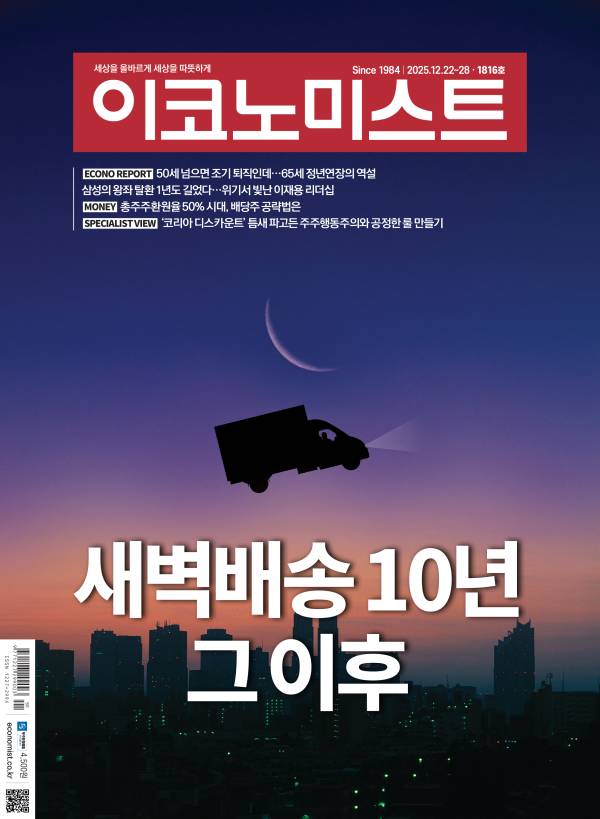- The New Generation Gap
Learning With Newsweek
영문 기사를 읽고 질문에 답해 봅시다. 이 기사의 번역문은 뉴스위크 한국판 2008년 1월 30일자 63~65쪽에 실렸습니다. The New Generation Gap When Katherine Chon was in fifth grade, she drew a "dream tree" representing the path she hoped her life would take. One branch led to Harvard Medical School, which is exactly what her mother, Kumhee, had hoped for when the family immigrated to New Hampshire from South Korea in 1980. The Chons, including the then 2-month-old Katherine, brought only $200 and spoke no English, but the parents worked long hours - on an assembly line at a Hewlett-Packard plant and in a dry cleaner's they eventually bought - to give their three children opportunities they could never have had in South Korea. "I was a typical mom," recalls Kumhee. "I wished my kids to get higher education, get powerful jobs." Always a diligent student, Katherine started out on the
1.premed track at Brown. But then a new limb sprouted on her dream tree - one that her mother still doesn't understand. She read in the local newspaper that South Korean women were being forced into brothels near Brown. Appalled, Katherine
2.joined forces with another Brown student to form the Polaris Project, now one of the largest anti-human-trafficking organizations in the country. "It was really hard for my parents," says Katherine, now 27. "They gave up a life in Korea; they were working 80 to 90 hours a week, and had so many life stresses so their children could get a great education and have a comfortable life." The dreams of parents and children often clash, but the conflict can be especially painful in first-generation immigrant families where the parents have made enormous sacrifices. Lisa Sun-Hee Park, an assistant professor in the Ethnic Studies Department at the University of California, San Diego, says that every family that moves to the United States to provide opportunities for their children shares a remarkably similar story. The focus is almost always on the future, with little mention of the circumstances that compelled them to move. And even though the parents are the ones working 12-hour days, the children are also under intense pressure to perform in ways that will justify the parents' sacrifice: study hard, get into top schools and choose careers that offer financial stability without considering personal fulfillment. The contrast between parents' dreams and children's realities can be particularly acute for daughters who have grown up with almost infinite opportunity in the wake of the feminist movement. Their mothers often came from countries where opportunities for women were severely limited, which makes the daughters' choices even more
3.inexplicable. May Lugemwa's family left Uganda and the tyranny of Idi Amin when she was 7, ultimately settling in Birmingham, Alabama, where her father was studying for a Ph.D. in biochemistry. Her mother, a math teacher, stood in line for hours to make sure May was enrolled in a
4.progressive grade school. Later, May was accepted at Harvard, where her parents encouraged her to study math or science. May complied at first, majoring in computer science. But then she switched to Visual and Environmental Studies, where she concentrated on film, much to her parents?bewilderment. Then her plans
5.took an even more surprising turn - back to Uganda. For her senior film thesis, May accompanied her mother on her first trip back, filming her return to the village and visiting the graves of relatives. Then she discovered her mother's biggest secret: another daughter still in Uganda. The resulting short film, "Former Nationality," won awards and was even included in a film festival in Uganda. Now 25, May is currently studying at UCLA film school and working as a producer for a nonprofit organization called Meaningful Media. "I sometimes feel guilt," she says, "having chosen to be an artist, because I know that if I had chosen a scientific background, I could help my parents a lot more - and my relatives back home." The struggle to reconcile personal fulfillment with familial obligation is common in this generation of immigrant daughters. Sparlha Swa, 27, for one, believes that following her bliss is the best way to honor her mother's sacrifice. Juliet Hart brought her three children to the United States from Jamaica for the opportunities. Sparlha and her brothers were straight-A students, and she went on to major in anthropology at Stanford. Sparlha held a series of jobs but soon found she could make money
6.heeding her passion for music. She's now a singer-songwriter, and has performed around the world. One of her most personal songs is called "Mama," and includes the lines: "Who worked 16 hours just the other day breaking her back, her pride, her bones? So that we wouldn't ever have to do the same, never have to groan and moan, when we were
7.on our own." Sparlha says her mother is now her biggest fan. "My mom's life has been inspirational because she has served the family instead of serving her own dreams. Because she didn't get to live her dreams, I have to." Sometimes, mothers are called upon to do more than merely accept their daughters' choices. Going against the traditions and beliefs of their community can be devastating, as Irshad Manji's mother, Mumtaz, 62, knows
8.firsthand. Her 39-year-old daughter has been hailed as the face of modern Islam, largely because of her controversial 2004 book, "The Trouble With Islam," a call for Muslims to make their faith more tolerant, especially of women. Irshad was raised in Canada after her parents emigrated from Uganda during Idi Amin's crackdown on South Asians. She's openly lesbian and has worked as a broadcast journalist in Toronto. Mumtaz is a devout Muslim who lives by the
9.Five Pillars of Islam and faithfully attends mosque. Although Mumtaz sometimes wishes her daughter were more conventionally observant, she
10.sticks by her - even in the face of opposition from members of her mosque. When Irshad's book was published, her mother found out that her imam planned on making it the subject of a four-sermon series, beginning on the last Sunday of Ramadan, when the mosque would be filled with people. Although she knew she would face gossip, Mumtaz attended anyway. "Until this day, there are so many people who don't talk to me," Mumtaz says. "But who cares? My daughter comes first." Even when beliefs clash, love and loyalty endure.
■ NOTES
<< Pre Reading
● What are some of the reasons individuals and families choose to immigrate to other countries? Is it something you might consider? (개인과 가족이 다른 나라로 이민을 떠나는 이유를 몇 가지 들어보라. 당신도 고려할 만한 일인가?)
<< Careful Reading
● What is a 'ream tree'? (‘꿈나무’는 무엇을 가리키나?)
● What does a 'typical' immigrant mother want for her children? (‘전형적인’ 이민자 여성은 자녀가 어떻게 되기를 원하나?)
● Why did May Lugemwa's family leave Uganda? (메이 루젬와의 가족은 왜 우간다를 떠났나?)
● Why did she return there? (왜 그녀는 다시 우간다로 돌아갔나?)
● Who was Sparlha Swa's inspiration? (스팔라 스와는 누구에게서 영감을 얻었나?)
● Why was the book 'The Trouble with Islam' controversial? (‘이슬람의 문제’라는 책이 논란이 된 이유는?)
영문 기사를 읽고 질문에 답해 봅시다. 이 기사의 번역문은 뉴스위크 한국판 2008년 1월 30일자 63~65쪽에 실렸습니다. The New Generation Gap When Katherine Chon was in fifth grade, she drew a "dream tree" representing the path she hoped her life would take. One branch led to Harvard Medical School, which is exactly what her mother, Kumhee, had hoped for when the family immigrated to New Hampshire from South Korea in 1980. The Chons, including the then 2-month-old Katherine, brought only $200 and spoke no English, but the parents worked long hours - on an assembly line at a Hewlett-Packard plant and in a dry cleaner's they eventually bought - to give their three children opportunities they could never have had in South Korea. "I was a typical mom," recalls Kumhee. "I wished my kids to get higher education, get powerful jobs." Always a diligent student, Katherine started out on the
1.premed track at Brown. But then a new limb sprouted on her dream tree - one that her mother still doesn't understand. She read in the local newspaper that South Korean women were being forced into brothels near Brown. Appalled, Katherine
2.joined forces with another Brown student to form the Polaris Project, now one of the largest anti-human-trafficking organizations in the country. "It was really hard for my parents," says Katherine, now 27. "They gave up a life in Korea; they were working 80 to 90 hours a week, and had so many life stresses so their children could get a great education and have a comfortable life." The dreams of parents and children often clash, but the conflict can be especially painful in first-generation immigrant families where the parents have made enormous sacrifices. Lisa Sun-Hee Park, an assistant professor in the Ethnic Studies Department at the University of California, San Diego, says that every family that moves to the United States to provide opportunities for their children shares a remarkably similar story. The focus is almost always on the future, with little mention of the circumstances that compelled them to move. And even though the parents are the ones working 12-hour days, the children are also under intense pressure to perform in ways that will justify the parents' sacrifice: study hard, get into top schools and choose careers that offer financial stability without considering personal fulfillment. The contrast between parents' dreams and children's realities can be particularly acute for daughters who have grown up with almost infinite opportunity in the wake of the feminist movement. Their mothers often came from countries where opportunities for women were severely limited, which makes the daughters' choices even more
3.inexplicable. May Lugemwa's family left Uganda and the tyranny of Idi Amin when she was 7, ultimately settling in Birmingham, Alabama, where her father was studying for a Ph.D. in biochemistry. Her mother, a math teacher, stood in line for hours to make sure May was enrolled in a
4.progressive grade school. Later, May was accepted at Harvard, where her parents encouraged her to study math or science. May complied at first, majoring in computer science. But then she switched to Visual and Environmental Studies, where she concentrated on film, much to her parents?bewilderment. Then her plans
5.took an even more surprising turn - back to Uganda. For her senior film thesis, May accompanied her mother on her first trip back, filming her return to the village and visiting the graves of relatives. Then she discovered her mother's biggest secret: another daughter still in Uganda. The resulting short film, "Former Nationality," won awards and was even included in a film festival in Uganda. Now 25, May is currently studying at UCLA film school and working as a producer for a nonprofit organization called Meaningful Media. "I sometimes feel guilt," she says, "having chosen to be an artist, because I know that if I had chosen a scientific background, I could help my parents a lot more - and my relatives back home." The struggle to reconcile personal fulfillment with familial obligation is common in this generation of immigrant daughters. Sparlha Swa, 27, for one, believes that following her bliss is the best way to honor her mother's sacrifice. Juliet Hart brought her three children to the United States from Jamaica for the opportunities. Sparlha and her brothers were straight-A students, and she went on to major in anthropology at Stanford. Sparlha held a series of jobs but soon found she could make money
6.heeding her passion for music. She's now a singer-songwriter, and has performed around the world. One of her most personal songs is called "Mama," and includes the lines: "Who worked 16 hours just the other day breaking her back, her pride, her bones? So that we wouldn't ever have to do the same, never have to groan and moan, when we were
7.on our own." Sparlha says her mother is now her biggest fan. "My mom's life has been inspirational because she has served the family instead of serving her own dreams. Because she didn't get to live her dreams, I have to." Sometimes, mothers are called upon to do more than merely accept their daughters' choices. Going against the traditions and beliefs of their community can be devastating, as Irshad Manji's mother, Mumtaz, 62, knows
8.firsthand. Her 39-year-old daughter has been hailed as the face of modern Islam, largely because of her controversial 2004 book, "The Trouble With Islam," a call for Muslims to make their faith more tolerant, especially of women. Irshad was raised in Canada after her parents emigrated from Uganda during Idi Amin's crackdown on South Asians. She's openly lesbian and has worked as a broadcast journalist in Toronto. Mumtaz is a devout Muslim who lives by the
9.Five Pillars of Islam and faithfully attends mosque. Although Mumtaz sometimes wishes her daughter were more conventionally observant, she
10.sticks by her - even in the face of opposition from members of her mosque. When Irshad's book was published, her mother found out that her imam planned on making it the subject of a four-sermon series, beginning on the last Sunday of Ramadan, when the mosque would be filled with people. Although she knew she would face gossip, Mumtaz attended anyway. "Until this day, there are so many people who don't talk to me," Mumtaz says. "But who cares? My daughter comes first." Even when beliefs clash, love and loyalty endure.
■ NOTES
1.premed track: 의예과(premedical) 과정(진로, 노선). 2.join forces with: ~와 힘을 합치다(손을 잡다, 협력하다). 3.inexplicable: 이해하기 어려운, 설명하기 어려운, 불가해한. 4.progressive grade school: 진보적인 교육을 실시하는 학교. 5.took an even more surprising turn: 더 놀라운 방향으로 변했다. Ex. take a favourable turn(사태가 호전되다). 6.heed: 신경을 쓰다, 주의를 기울이다, 경청하다. 7.on our own: 자력으로, 단독으로, 자립해. 8.firsthand: 직접, 직접 체험을 통해 얻은. 9.Five Pillars of Islam: 이슬람 교도가 반드시 지켜야 하는 이슬람의 다섯 개 원리. 10.stick by: (사람에게) 충실하다, 현재의 상태를 지속하다. |
<< Pre Reading
● What are some of the reasons individuals and families choose to immigrate to other countries? Is it something you might consider? (개인과 가족이 다른 나라로 이민을 떠나는 이유를 몇 가지 들어보라. 당신도 고려할 만한 일인가?)
<< Careful Reading
● What is a 'ream tree'? (‘꿈나무’는 무엇을 가리키나?)
● What does a 'typical' immigrant mother want for her children? (‘전형적인’ 이민자 여성은 자녀가 어떻게 되기를 원하나?)
● Why did May Lugemwa's family leave Uganda? (메이 루젬와의 가족은 왜 우간다를 떠났나?)
● Why did she return there? (왜 그녀는 다시 우간다로 돌아갔나?)
● Who was Sparlha Swa's inspiration? (스팔라 스와는 누구에게서 영감을 얻었나?)
● Why was the book 'The Trouble with Islam' controversial? (‘이슬람의 문제’라는 책이 논란이 된 이유는?)
ⓒ이코노미스트(https://economist.co.kr) '내일을 위한 경제뉴스 이코노미스트' 무단 전재 및 재배포 금지










![면봉 개수 → 오겜2 참가자 세기.. 최도전, 정직해서 재밌다 [김지혜의 ★튜브]](https://image.isplus.com/data/isp/image/2025/12/21/isp20251221000019.400.0.jpg)
![갓 잡은 갈치를 입속에... 현대판 ‘나는 자연인이다’ 준아 [김지혜의 ★튜브]](https://image.isplus.com/data/isp/image/2025/11/21/isp20251121000010.400.0.jpg)



당신이 좋아할 만한 기사
브랜드 미디어
브랜드 미디어
이이경, ‘용감한 형사들4’ 자리도 비운다…“당분간 게스트가 출연” [공식]
대한민국 스포츠·연예의 살아있는 역사 일간스포츠이데일리
이데일리
팜이데일리
[왓IS] MC몽·차가원 “부적절한 관계 NO, 전부 조작”…법적 대응 예고 [종합]
대한민국 스포츠·연예의 살아있는 역사 일간스포츠일간스포츠
일간스포츠
일간스포츠
석화 구조개편 본격화에도…업계 “버틸 체력 부족” 우려
세상을 올바르게,세상을 따뜻하게이데일리
이데일리
이데일리
[마켓인]‘1.7% 격차’ 좁힌 고려아연…MBK·영풍, 남은 5일 시나리오는
성공 투자의 동반자마켓인
마켓인
마켓인
'플루빅토 독점 구조 흔들까'…효능·부작용 앞세운 셀비온, 5400억 정조준
바이오 성공 투자, 1%를 위한 길라잡이팜이데일리
팜이데일리
팜이데일리